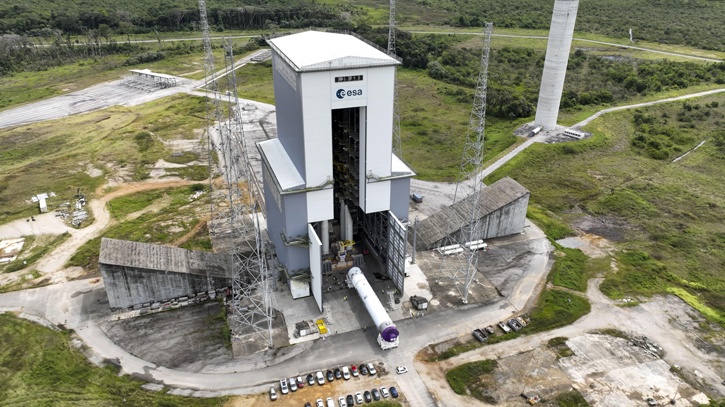
Photo: Collected
Europe's new Ariane 6 rocket is set for its first-ever launch next week, carrying with it the continent's hopes of regaining independent access to space and fending off soaring competition from Elon Musk's SpaceX. After four years of delays, the European Space Agency's (ESA) most powerful rocket yet is finally due to blast off from Europe's spaceport in Kourou, French Guiana, at 3:00 pm (1800 GMT) on July 9.
Since the last flight of the rocket's workhorse predecessor, Ariane 5, a year ago, Europe has been unable to launch satellites or other missions into space without relying on rivals such as the US firm SpaceX.
Kourou was the site of launches by Russia's Soyuz rockets for more than a decade, before Moscow withdrew them after invading Ukraine in 2022. Later that year, Europe's Vega-C light launcher was grounded after a launch failure. Delays to Ariane 6's first flight -- originally scheduled for 2020 -- compounded the crisis.
"Everything that could go wrong went wrong," ESA chief Josef Aschbacher said.
That is why "Ariane 6 is crucial for Europe," he added. "It's absolutely mandatory for Europe to have an independent access to space."
After the struggles of the 4.5-billion-euro ($4.8 billion) programme, Europe's space industry has been nervously observing the run-up to the launch. A "wet dress rehearsal" late last month ran through all the launch procedures, right up to the moment before the engines ignite on the launchpad.
It went "very smoothly... like a Swiss watch," ESA space transportation acting director Toni Tolker-Nielsen said, adding that there was nothing to call the launch date into question.
Messenger/Disha








